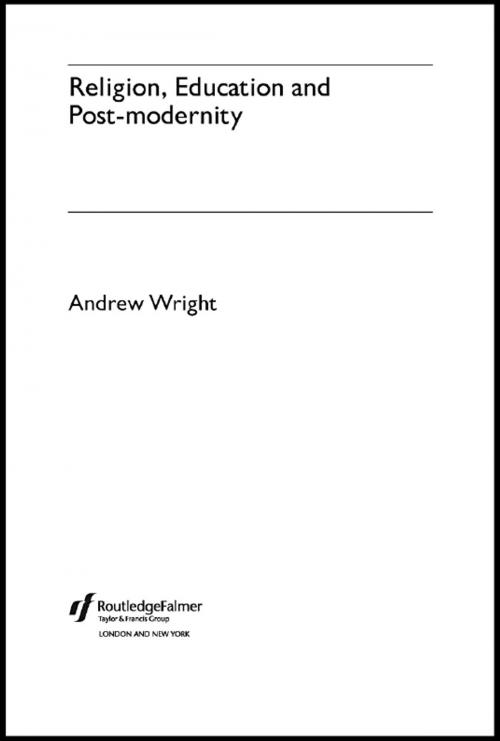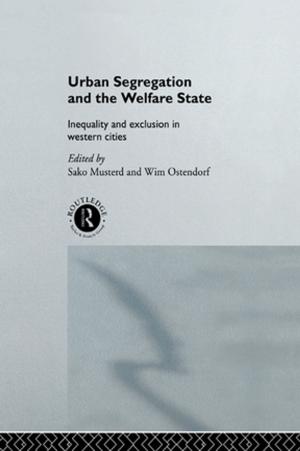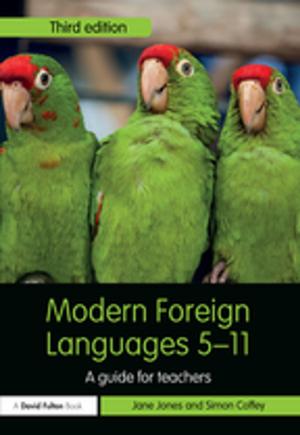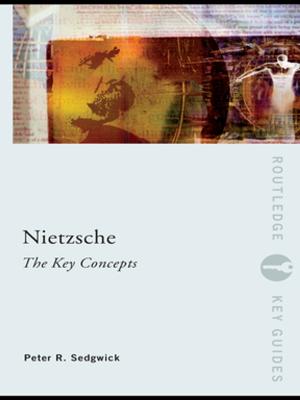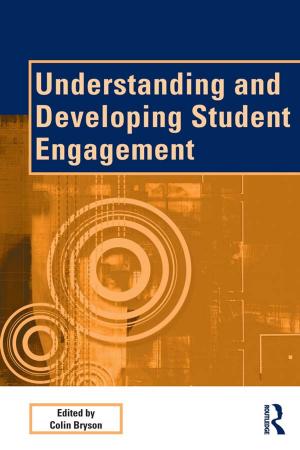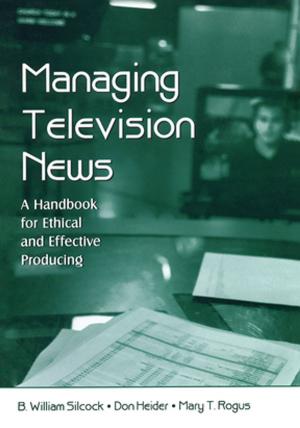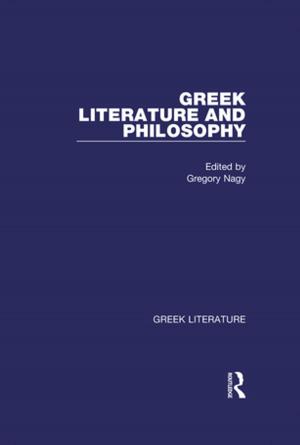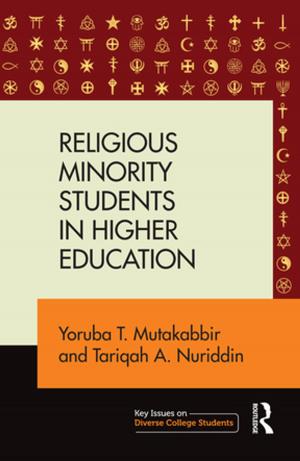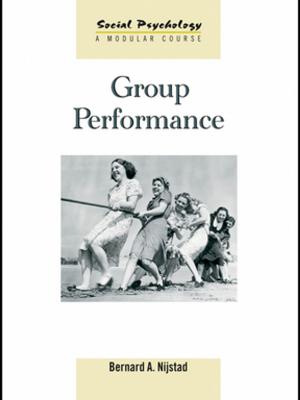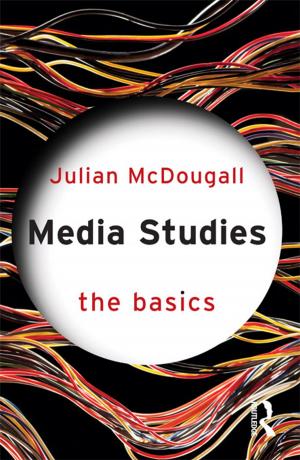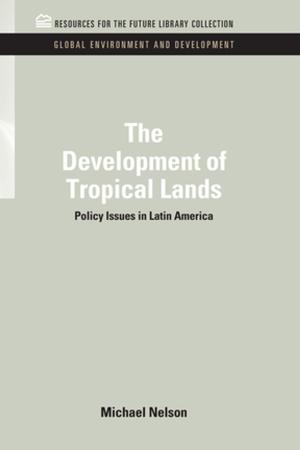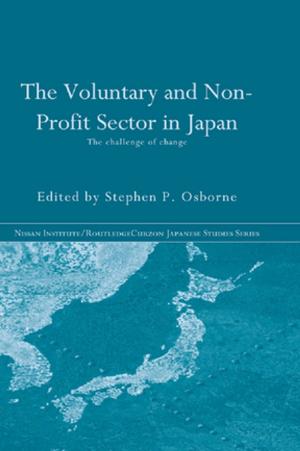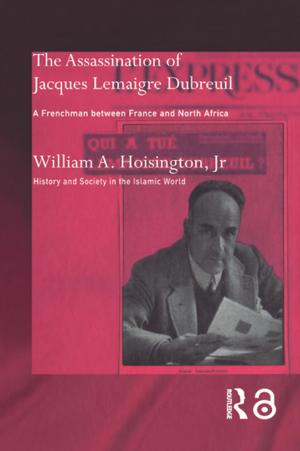| Author: | Andrew Wright | ISBN: | 9781134426409 |
| Publisher: | Taylor and Francis | Publication: | December 16, 2003 |
| Imprint: | Routledge | Language: | English |
| Author: | Andrew Wright |
| ISBN: | 9781134426409 |
| Publisher: | Taylor and Francis |
| Publication: | December 16, 2003 |
| Imprint: | Routledge |
| Language: | English |
This book, the first to explore religious education and post-modernity in depth, sets out to provide a much needed examination of the problems and possibilities post-modernity raises for religious education.
At once a general introduction to this topic and a distinctive contribution to the debate in its own right, Religion, Education and Post-modernity explores and illuminates the problems, and possibilities opened up for religious education by postmodern thought and culture. The book describes the emergence of post-modernity, considers the impact of post-modernity on religion, addresses its impact on the philosophy of religion and considers the nature of religious education in the post-modern world.
Andrew Wright argues that, although post-modernity has much to offer the religious educator, there are also many pitfalls and dangers to be avoided. Steering clear of the extreme of post-modern hyper-realism, he constructs a religious pedagogy sensitive to post-modern concerns for alterity, difference and the voice of the Other, whilst insisting on the importance of reasons in cultivating religious literacy.
This book, the first to explore religious education and post-modernity in depth, sets out to provide a much needed examination of the problems and possibilities post-modernity raises for religious education.
At once a general introduction to this topic and a distinctive contribution to the debate in its own right, Religion, Education and Post-modernity explores and illuminates the problems, and possibilities opened up for religious education by postmodern thought and culture. The book describes the emergence of post-modernity, considers the impact of post-modernity on religion, addresses its impact on the philosophy of religion and considers the nature of religious education in the post-modern world.
Andrew Wright argues that, although post-modernity has much to offer the religious educator, there are also many pitfalls and dangers to be avoided. Steering clear of the extreme of post-modern hyper-realism, he constructs a religious pedagogy sensitive to post-modern concerns for alterity, difference and the voice of the Other, whilst insisting on the importance of reasons in cultivating religious literacy.
